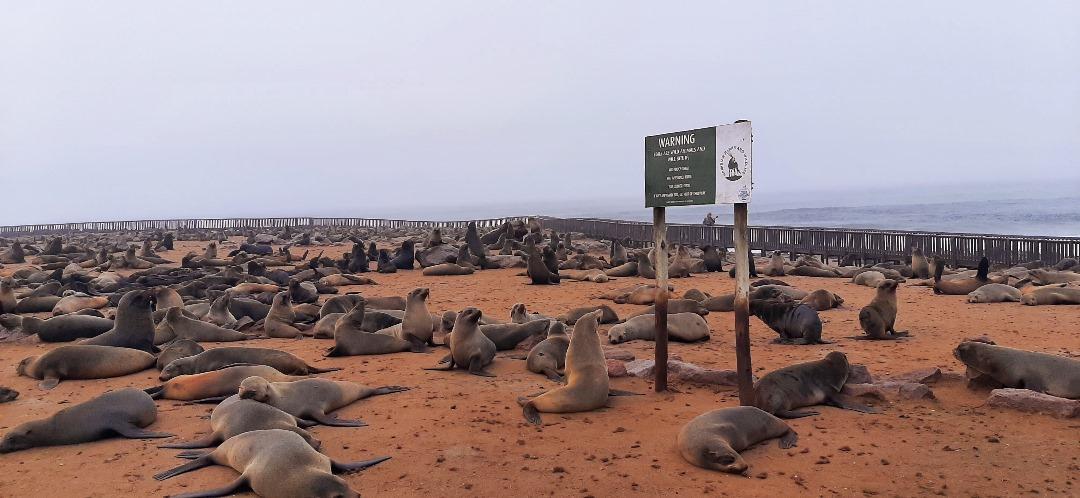Africa-Press – Namibia. The Directorate of Veterinary Services has urged the public to avoid any contact with Cape fur seals, following confirmation of the country’s first case of rabies in a seal at the Walvis Bay Lagoon.
Namibia is home to a large population of Cape fur seals, many of which regularly come ashore along the coast, including areas frequented by people for walking, fishing, and other recreational activities.
This increases the risk of unintended exposure for both humans and pets, particularly in popular coastal towns such as Walvis Bay, Swakopmund, Lüderitz and Henties Bay.
According to the directorate, members of the public should not attempt to feed, touch, or assist any seals, even those that appear calm, weak, or injured.
“We urge the public to remain extremely cautious. Avoid all contact with seals, especially if they show strange behaviour or seem disoriented,” said Dr Johannes Shoopala, the Acting Chief Veterinary Officer in the Ministry of Agriculture, Water and Land Reform, yesterday.
The confirmed case involves a Cape fur seal observed displaying abnormal and aggressive behaviour on 13 June at the Walvis Bay Lagoon. The animal later died and samples were taken from it the following day. Laboratory tests conducted by the Central Veterinary Laboratory in Windhoek confirmed the presence of rabies on 16 June.
“This is a rare but very serious development for Namibia. While rabies is endemic here, we have mostly dealt with cases in domestic animals such as dogs. This is the first time a seal has tested positive, and it raises concern about what we may still uncover along our coast,” Shoopala added.
He further noted that Namibia now joins a small number of countries globally to report rabies in a marine mammal. South Africa reported its first such case in Cape fur seals in June last year, making this a growing concern for the region.
Rabies is a deadly viral disease that affects the nervous system of mammals. It is transmitted through bites or contact with the saliva of an infected animal. The disease is always fatal if post-exposure treatment is not administered before the onset of symptoms.
As such, coastal residents are urged to be vigilant and report any signs of rabies if they encounter seals.
According to the ministry, warning signs include unusual behaviour such as aggression, disorientation, strange vocalisations, excessive salivation or foaming at the mouth. In more advanced stages, symptoms may include paralysis or sudden collapse. Some infected animals may appear unusually calm, weak, or unresponsive rather than aggressive.
The public is strongly advised not to approach or feed any seals, regardless of how docile they may appear, and to keep children and pets at a safe distance. Suspicious seal behaviour should be reported immediately to state veterinarians, fisheries or environmental officials, local authorities, or the SPCA, as rabies is a state-controlled disease under the Animal Health Act of 2011.
For More News And Analysis About Namibia Follow Africa-Press






